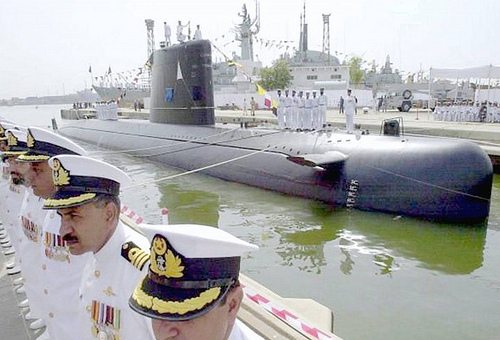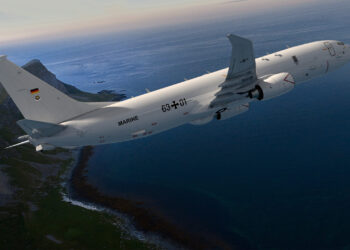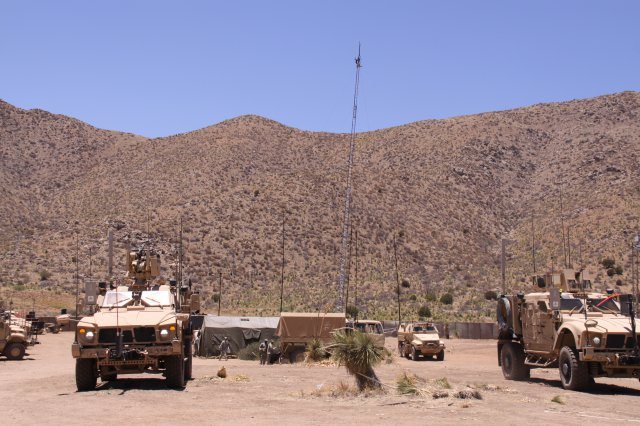DCNS is ready to ship the second of three Mesma air-independent propulsion modules ordered by the Pakistan Navy for its DCNS-designed Agosta 90B submarines. This module will be installed as part of a scheduled major refit for one of two Agosta 90Bs in active service.
The self-contained hull module will be integrated with the host submarine over the next few months with DCNS technical assistance. A ‘cut-and-plug’ operation will see the 8.7-metre-long ‘plug’ inserted into the boat’s hull. The first Mesma module was integrated directly during the construction of third-of-class Agosta 90B submarine PNS Hamza which entered active service in 2008.
Following the ‘cut-and-plug’, the boat will have a length of 76.2 metres for a submerged displacement of 1980 tonnes. The Mesma module will enable the submarine to remain submerged for weeks at a time.
Following a qualification campaign lasting seven months and tests totalling 5,200 hours, the AIP module was prepared for shipment as a 160-tonne package. The main aims of the tests conducted by teams at DCNS’s Indret centre were to ensure that the module worked as designed and met its performance specifications. More specifically, DCNS engineers and technicians checked the AIP’s output power, endurance and range. These tests were followed by acceptance tests in the presence of customer representatives in March.
The earlier, three-month phase one campaign progressively powered-up this advanced-technology system comprising some 250 components and 2.5 kilometres of electrical cable.
Once the campaigns had been completed, the AIP was disconnected from the test equipment and packed for shipment by barge to the nearby port of Saint-Nazaire where it will be loaded onto a ship chartered by the customer. The voyage to the shipyard in Pakistan will take three to four weeks.
“We have the benefit of some economies of scale,” explains Delphine Bréhéret, the Mesma programme manager at DCNS’s Nantes-Indret centre. “The first module was delivered in June 2002. Knowledge sharing and lessons learned have played an important part. We have now started testing module n° 3. This time, the test teams will include Pakistan Navy engineers.”
The first of the series of Agosta 90B submarines for Pakistan was built at DCNS’s Cherbourg shipyard and commissioned in 1999. The second and third boats were built in Karachi under a technology transfer programme; the third including a Mesma® module from the outset. After deciding to equip the other two boats with AIP modules as they came due for major refits, the Navy placed the corresponding orders. The third module is undergoing qualification testing at the Indret centre.
Mesma, an innovative AIP
AIP systems enable conventional diesel-electric submarines to remain submerged for weeks at a time. Without AIP, diesel-electric submarines have to come up to snorkelling depth or surface at shorter intervals so that the diesel engines can recharge their batteries. This significantly increases the risk of detection. (A submarine’s diesel engines can only be started once the snorkel has cleared the surface to take in fresh air. Snorkelling depth is about the same as periscope depth.) AIP significantly improves stealth because it enables a submarine to generate electricity while completely submerged.
A Mesma AIP plug can be added to a conventional-propulsion submarine at the design stage or as part of a refit.
Technical data for Mesma hull plug:
- diameter: same a submarine’s hull
- length: < 10 m
- output power: 200 kW
A Mesma AIP increases a submarine’s submerged endurance three to four fold.
DCNS is a world leader in naval defence and an innovative player in energy. The Group’s success as an advanced technology company with global reach is built on meeting customer needs by deploying exceptional know-how and unique industrial resources. DCNS designs, builds and supports surface combatants, submarines and mission-critical systems and equipment incorporating the most advanced technologies. The Group employs 12,500 people and generates annual revenues of around EUR 2.5 billion.











